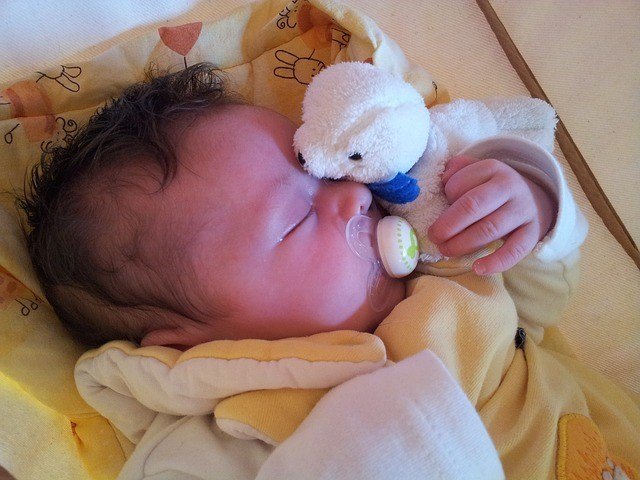If you are a new parent, you might probably get shocked when your baby is suddenly refusing a bottle for feeding. However, before you get very alarmed, you might want to know some of the reasons why your baby doesn’t want the bottle. Let’s find out in this article.
Reasons Why Your Baby Suddenly Refusing Bottle
If your baby suddenly refuses the bottle, you might get baffled and concerned since you might think that your baby may starve. However, that is not likely to happen if you are able to point out the root cause of why your baby is refusing the bottle. Moreover, as a parent, you have to understand the body language of your baby to identify the reason and possible solution about your baby’s bottle refusal.
Baby Still Prefers Being Breastfed
If you are just transitioning from breastfeeding into bottle feeding, your baby might not immediately be very receptive to this change. Moreover, even though you put your breast milk in the feeding bottle, your baby may still refuse it because of the different feeding experience brought by the feeding bottle. Also, breastfeeding offers a different milk flow and temperature that your baby may prefer over bottle feeding.
Baby Needs a Different Feeding Bottle
There are different feeding bottles in the market that you may choose from. Moreover, these bottles offer different milk flow and overall feeding experience to your baby. The different nipples on the feeding bottle may help your baby feed properly. Feeding bottles may be fast feeding bottles or slow feeding bottles. Your baby may favor one over the other, so you might want to give both a try to determine which your baby prefers during feeding.
Teething
If your baby is teething he or she may refuse to feed on a bottle because of the pain that is being experienced by your baby during feeding. Besides, teething discomfort may not last very long and you may find ways to relieve your baby’s teething discomfort to promote bottle feeding. If you notice that your baby is refusing the bottle due to teething discomfort, you may apply ice to the inflamed gums of your baby to alleviate the discomfort.
Overfed
If you are a new parent, it might be difficult to determine when your baby should eat. Moreover, due to this, you might already be overfeeding your baby without realizing it. When this happens, your baby may refuse to feed on the next feeding schedule because he or she may still feel full when the feeding bottle is offered.
Oral Infection
Oral thrush is an infection caused by fungi in the mouth of your baby. If this type of infection develops, your baby may have trouble feeding because this condition causes immense discomfort in the mouth of your baby. If your baby has an oral infection, he or she may refuse the feeding bottle due to the pain and discomfort caused by the infection.
If the oral infection is the cause of your baby refusing the feeding bottle, the infection has to be addressed to promote the natural appetite of your baby. Moreover, you may also get your baby checked by a pediatrician for possible interventions for the infection if it continues to persist.
Baby is Distracted During Feeding
If your baby gets distracted during feeding, he or she may refuse to feed altogether. To prevent this, you may feed your baby in a room or a calm place with minimal distractions in the surroundings. Moreover, if your baby is not used to so many distractions during feeding, he or she may need time to adjust to feeding with various stimuli from the surroundings. Also, with many distractions, it may stimulate your baby to play instead of feed.
Improper Feeding Position
If your baby is feeding in the wrong position, the flow of milk might not be suitable for your baby that may lead to your baby to refuse the feeding bottle. Moreover, improper feeding position can make your baby feel uncomfortable during feeding. If your baby is refusing the bottle in a specific position, you may want to change the feeding position and find the right position that works for your baby to promote proper feeding.
Baby Dislikes Milk Temperature in the Bottle
If you recently transitioned from breastfeeding to bottle-feeding, your baby might be more used to the milk temperature of breast milk, your baby may dislike the milk temperature from the bottle. During the transition, it may be beneficial for your baby to offer milk at different temperatures that work for your baby. Moreover, your baby might prefer room temperature milk or warm milk that is almost the same temperature as your body.
Tips to Avoid Baby Bottle Refusal
Once you have identified the cause of your baby’s bottle refusal, you might want to try some of these tips to encourage your baby to bottle feed. Moreover, it is important to understand the body language of your baby to determine the possible solution to maintain the healthy feeding routine of your baby. Here are some tips to encourage your baby to bottle feed:
- Use a pacifier to stimulate sucking reflex
- Try bottles and nipples that provide different milk flow
- Avoid distractions during feeding
- Start bottle-feeding early to minimize chances of refusal
- Have someone else offer the bottle to your baby
- Observe proper feeding positions
Conclusion
If your baby is suddenly refusing the bottle, there are some things that you can do to encourage your baby to feed. Moreover, it might help to have different bottle options for your baby to determine which type of bottle works. Identifying the reason behind the bottle refusal may be the key to proving a solution and encourage your baby’s normal feeding.









 Store
Store